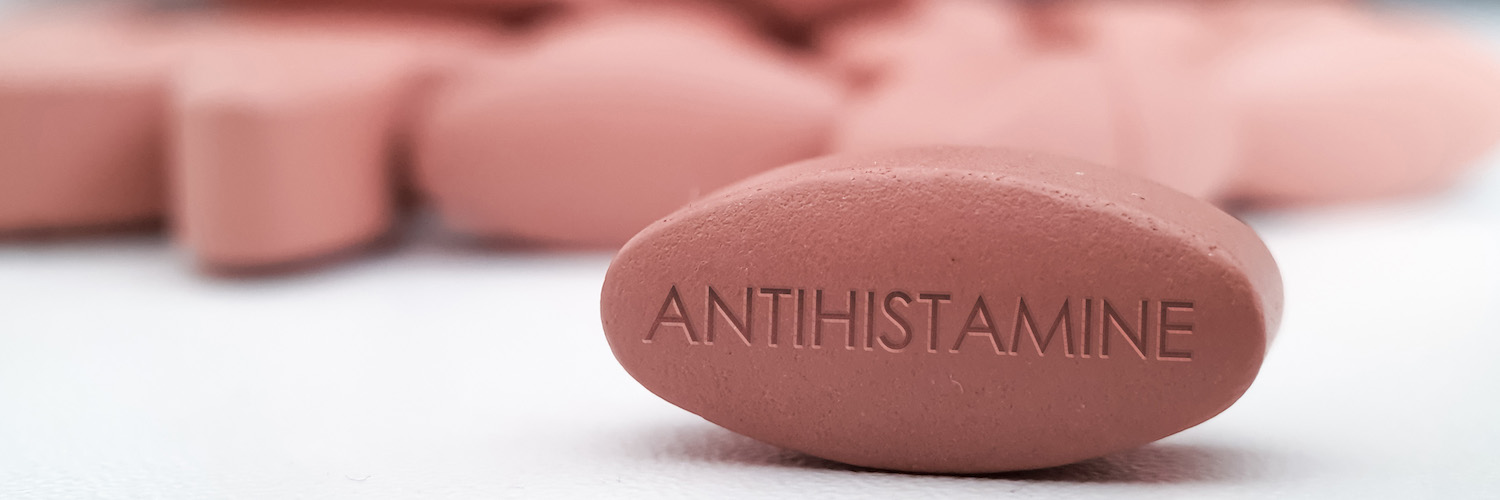Over-the-counter antihistamines appear to improve outcomes for cancer patients treated with checkpoint inhibitors. The study, reported in Cancer Cell (published online 24 November), found that melanoma and lung cancer patients taking antihistamines targeting the H1 receptor during anti-PD-1/PD-L1 treatment achieved statistically significant reductions in mortality compared with age, sex, or stage-matched patients not taking antihistamines.
“The strong correlation between low levels of plasma histamine and better response to ICB (immune checkpoint blockade) treatment in cancer patients infers that patients who have high levels of histamine in plasma and thus respond poorly to immunotherapies may particularly benefit from antihistamine treatment,” write the authors, led by Dihua Yu, from the Department of Molecular and Cellular Oncology at the University of Texas MD Anderson Cancer Center. Based on the study, add the authors, over-the-counter antihistamines could be used to make immunotherapy more effective.
Histamine, a metabolite of histidine, is best known for being released from mast cells as a response to allergic reactions or tissue damage. Histamine exerts its effects primarily by binding to G-protein-coupled receptors, designated histamine receptors H1 through H4. Second-generation H1-antihistamines – including cetirizine, loratadine and fexofenadine – mainly work by blocking histamine receptors. In addition to relieving allergy symptoms, in cancer treatment antihistamines are also used to prevent nausea and vomiting. Cancer cells frequently upregulate a histamine-synthesizing enzyme, L-histidine decarboxylase, leading to increased levels of histamine. Generally, the roles of histamine and histamine receptors in cancer development have not been widely explored.
For the current study, investigators from the University of Texas MD Anderson Cancer Center retrospectively evaluated clinical outcomes for 779 melanoma, 290 breast, 1,700 lung and 338 colon cancer patients who had been prescribed checkpoint inhibitors, according to whether they also took 40 common medications (including antacids, anti-inflammatories and prescription drugs such as antibiotics and steroids).
Results showed, among the 40 common drugs explored, only HRH1-specific antihistamines (H1-antihistamines or second-generation antihistamines) significantly correlated with better survival of patients (expect for aspirin). In melanoma, 30% of patients treated with an anti-PD-1/PD-L1 took antihistmines died versus 43% of those not taking antihistamines (P=0.005); in lung cancer 50% of patients treated with an anti-PD-1/PD-L1 who took antihistmines died versus 60% control of patients not taking antihistamines (P=0.013). A trend was also observed in breast and colon cancer.
Based on these findings, the team went on to explore the role that histamine and its receptor plays in immune response to cancer. In existing patient tumour samples, they found that high levels of histamine receptor H1 (HRH1) correlated with markers of T cell dysfunction and poor survival. Rather than cancer cells themselves containing histamine receptors, they discovered that they were largely expressed in tumour-associated macrophages, a class of immune cells known to be involved in suppressing anti-tumour response.
When the investigators blocked the HRH1 receptors in macrophages, either by genetically modifying the cells or treating them with antihistamines, they found both approaches increased T cell activation and slowed tumour growth. Mechanistically, HRH1 knockout or antihistamine treatment reverted macrophage immunosuppression, revitalized T cell cytotoxic function, and restored immunotherapy responses.
“We were surprised to find that almost all the cancer cells we tested have significantly increased secretion of histamines compared to normal cells,” says co-author Yi Xiao. “We know that allergy response releases a lot of histamines but didn’t expect such a stunning suppressive effect on antitumor immunity.”
The study, write the authors, had the limitation that numbers of patients with pre-existing allergies receiving antihistamine treatment prior to checkpoint inhibitor therapy had not been recorded.
Moving forward, the team is looking to design prospective clinical trials evaluating combinations of antihistamines and checkpoint inhibitors in cancer patients. “There is more work to be done, but we are excited to continue exploring possible therapeutic applications with antihistamines, which offer an inexpensive approach with minimal side effects,” says Yu.












